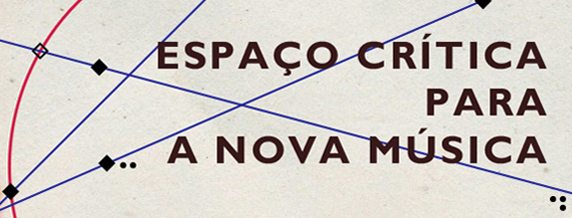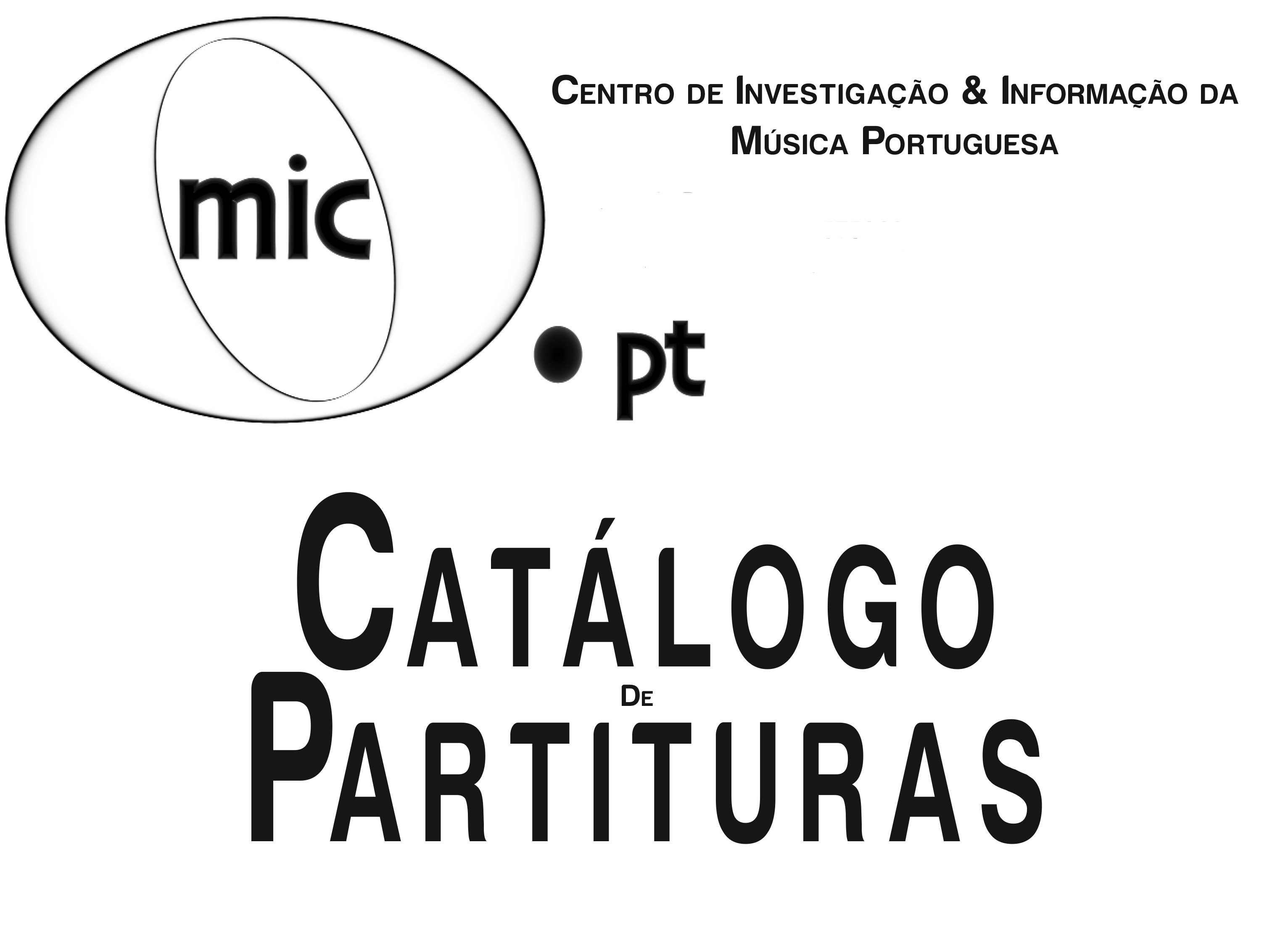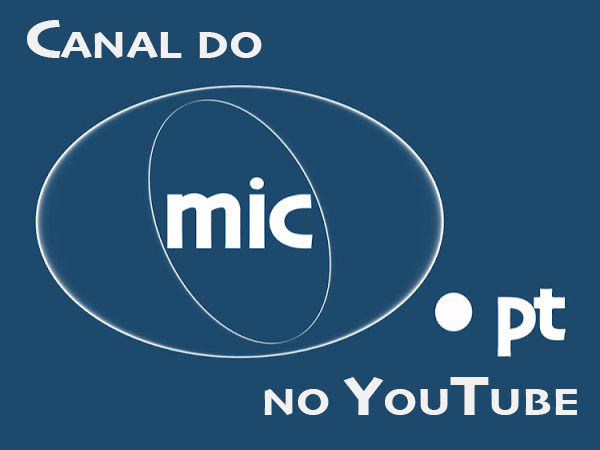“I am a musician who feels no embarrassment in being moved, even to the extent of tears.
Emotive flexibility in music results from the coexistence of intuition and technical rigour.
It is the rigour that enables us to reach a richer intuitive expression.”
The Anglo-Portuguese or Luso-British composer has been a part of Portuguese musical life for more than 30 years. Last year in November we celebrated two events – the composer’s 60th birthday and 30 years of his residence in Portugal, characterized by an intense activity as composer, teacher and conductor. Get to know the vast and multifaceted work of Christopher Bochmann.
Christopher Bochmann began composing at the age of 14. He graduated at Oxford University, but also studied with the famous Nadia Boulanger in Paris and with Richard Rodney Bennett in London. The composer has worked in Portugal since 1980. He has taught in various schools in Lisbon area such as the Instituto Gregoriano de Lisboa and the Conservatório Nacional (National Conservatoire). For six years, he was the head of the Escola Superior de Música de Lisboa (Lisbon Music Academy), where between 1990 and 2006 he also coordinated the composition course. Since 2006 he has been a Visiting Professor at Évora University where since 2009 he has been Dean of the Arts. He has been the principal conductor of the Orquestra Sinfónica Juvenil (Lisbon Youth Orchestra) since 1984, with which he has recorded three CDs of his own compositions. In 2004 Christopher Bochmann was awarded a Medal of Cultural Merit by Ministry of Culture, Portugal; in 2005 was decorated him with the O.B.E. by Queen Elizabeth II.
Isobematic Music
Christopher Bochmann’s compositions include almost every musical genre, from works for solo instruments to orchestral music, from chamber music to opera, apart from innumerable orchestrations and arrangements. His musical style passed through a phase of the considerable complexity of post-serial modernism, when he worked intensively with aleatoric and open forms as well as controlled improvisations. Nevertheless, recently his music has incorporated greater simplicity following certain tendencies of postmodernism, yet without recourse to neo-tonality.
“I have invented a term, which has a Greek etymology – «isobematic». It comes from isos (meaning “equal”) and bema (“step”) and denotes a music whose basic material is one of equal steps. There is no scale of tone, tone, semitone, tone, tone, tone, tone, semitone or any other combination of these two steps, but rather a scale entirely of semitones – or quarter-tones or even sixths of a tone – a scale in which all the steps are the same”, explains the composer in an interview made by the Portuguese Music Research and Information Centre in 2003. And he emphasizes: “In my opinion, everything in music is relative. In a music without tonality or regular bar lengths – without these hierarchical relationships – everything is equal, «isobematic» (the semitones, the quavers, the semiquavers, the triplets, etc.): it is a question of relating one with another.” In his vocal music Chistopher Bochmann pays special attention to the investigation of the phonetic and semantic aspects of text, yet without an artificial connection between the words and the music. All of his music shows a concern with the relativity of the way in which we hear and appreciate sound, in an attempt to make compositional processes and structuring techniques increasingly closely based on intrinsically musical criteria. “I think that «to hear» is perhaps an important verb, but one needs to understand the word «to hear» and distinguish it from «to listen to». There are a lot of people who «hear», but do not pay attention and just let the music pass by. Therefore, we need to try to make them appreciate things, not through their musical language but through their content – for me this is fundamental.”
Professor of the “Second School of Évora”
Christopher Bochmann has developed a continuous teaching activity since 1973. In Portugal he has created a generation of young composers, who at present follow their individual career paths, some of them with an international dimension. The composer himself always mentions the importance of his work as teacher, emphasizing the influence between his various fields of activity: “[Frequently] I have in mind thoughts or ideas based on what one of my pupils has said or on a conversation with a performer. This causes me constantly to rethink my attitude towards music, my aesthetic stance towards composition...”
In his theoretical work Christopher Bochmann has written various articles on different aspect of music theory. His recent major publication is a book entitled “A Linguagem Harmónica do Tonalismo” (The Harmonic Language of Tonality), which has become an essential text in the teaching of harmony. In 2006 the edition was supplemented with a second volume devoted to harmonic analyses entitled “A Linguagem Harmónica do Tonalismo – Análises e Exercicios”.
Since 2006 Christopher Bochmann’s teaching activities have been concentrated in Évora, where he has managed to reanimate the musical life on both a practical and a theoretical level, putting this centre back onto the map of the history of Portuguese music. According to the composer there is a unifying element at the Composition Course of Évora University: “It is not a question of style and to say that it is a question of seriousness would be somewhat exaggerated. Nevertheless, there is something in the attitude, which these people altogether have in common and perhaps from this point of view one can talk about a school. Indeed, as a joke, I often say that in a way one of my ideas is to force musicologists to talk about the «first» school of Évora – as, in the mean time, a second will have come into being.”
The excerpts of Christopher Bochmann’s statements come from an interview made by Manuela Paraíso for the radio programme “Na Outra Margem” in November 2010 (
Na Outra Margem Podmatic) and from an interview realized by the Portuguese Music Research and Information Centre in 2003.
List of Works
Discography
Interview
Videos of the Hommage




